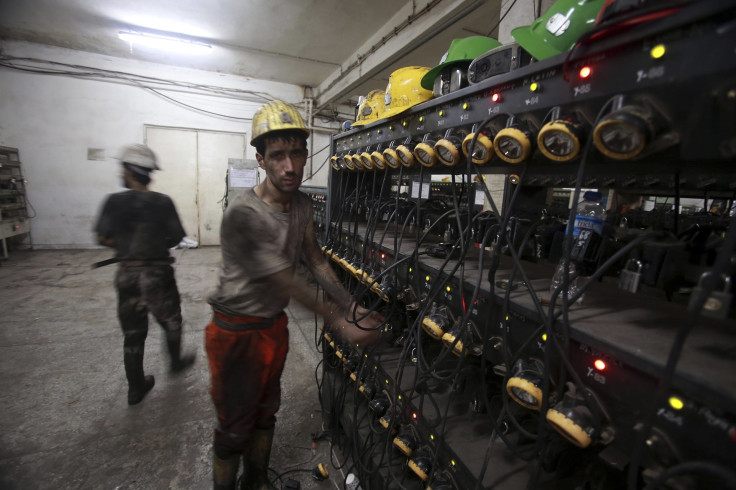Turkey Has One Of World's Worst Mining Safety Records, And Experts Say Privatization Is Part Of The Problem

ISTANBUL -- As Turkey reels from the worst mining disaster in its history, survivors and industry insiders claim that privatization has made the country’s collieries among the most dangerous in the world.
A 2010 report by the Turkish Economy Policies Research Foundation (TEPAV) found that the country’s coal mines have claimed more lives even than those of notorious China’s in terms of tons of coal produced, a widely used measurement. That would give Turkey a worst of the worst status, though most observers say China's numbers are less than reliable. Using a more conventional measurement — the number of annual fatalities per million workers — Turkey occupies one of the top spots, with a score of 5.74, according to International Labor Organization.
Critics say safety problems worsened after privatization of Turkey's coal mines in 2002, and claim that since the private company SOMA Komur Isletmeleri bought the Soma mine in 2005, the company has regularly skimped on safety measures to boost profits.
“With these mines, you can enter a mine, inspect it, everything is fine, and one hour later it explodes,” said Kenan Dikbiyik, a mining engineer and representative of the mining union Maden-Is who has been assisting with the rescue efforts at Soma. “This is why you cannot have profit be the main concern when exploiting them. This is why we believe privatizing them was an error. They should be nationalized.”
The Turkish government embarked upon a massive privatization effort during the past 12 years, aiming to attract investment and increase production in coal mining. Now some 90 percent of the country's mines are private, according to the daily Zaman.
Experts say the policy has come at the cost of safety.
“Recent trade-union statistics show that there was a 40 percent increase in accidents in mines since privatization started,” said Ozgur Gurbuz, a Turkish energy expert. “In order to win tenders, companies have to cut production costs, and there is only so much they can change. Ultimately, it is down to cutting wages and compromising safety.”
The opposition has also claimed that government corruption played a significant role in the disaster, a charge that the government and its supporters deny.
“In reality the practice in Turkey is that underqualified companies with ties to the government are winning the tenders,” said Necdet Pamir, a leading Turkish energy expert affiliated with the main opposition party. “They are maximizing profits by cutting wages and safety measures, and this is the cause for tragedies such as Soma.”
Just two weeks before the disaster, the government blocked an opposition motion in Parliament to force an inquiry into the safety of the Soma mines, claiming that they were safe, while denying any illicit connection to the mining company.
Turkish Prime Minister Recep Tayyip Erdogan triggered a small riot in Soma when he told mourners on Wednesday that such accidents were “in the nature of mining.” Unions launched a strike and antigovernment protests broke out in Turkey’s main cities.
“People are angry at the government because they sold the mine to a private company,” said Dikbiyik.
Turkey, which is the seventh-largest producer of coal in the region, has a grim record in mining safety, whatever figures are cited or measures used. But experts say that even in countries with far better safety records, such as the United States, the pressures created by privatization often contribute to accidents.
“The profit motive that is the foundation of market-based industries can influence the safety behavior of companies,” said Celeste Monforton, a leading mine safety expert at George Washington University School of Public Health. “In our most recent major coal mine disaster in 2010 at the Upper Big Branch coal mine [in which 29 miners were killed], the surviving workers said that production pressure played a major role in the disaster. This, despite the company's claim that safety was their number one priority.”
More than 10 percent of workplace accidents in Turkey happen in mines, and most of those occurred in coal mines. Some 13,000 miners suffered accidents at work in 2013, according to the Turkish Statistical Institute. Before the Soma disaster, there had been 1,308 fatal accidents in the industry since 2000. Gas explosions, pit collapses and carbon-monoxide poisonings were the main causes of the fatalities.
A steady global increase in the demand for coal has complicated the problem in Turkey as well as in other countries, as cheap low-skilled laborers have increasingly filled the ranks of coal miners.
Based on what is currently happening in Soma, it seems likely that the debate over privatization has only begun -- not only because of the number of deaths but because of its impact on Turkey's standing in the developed world.
Added Pamir: “I have been in this sector for 33 years, and I believe privatization is only harming the energy industy.".
© Copyright IBTimes 2024. All rights reserved.




















